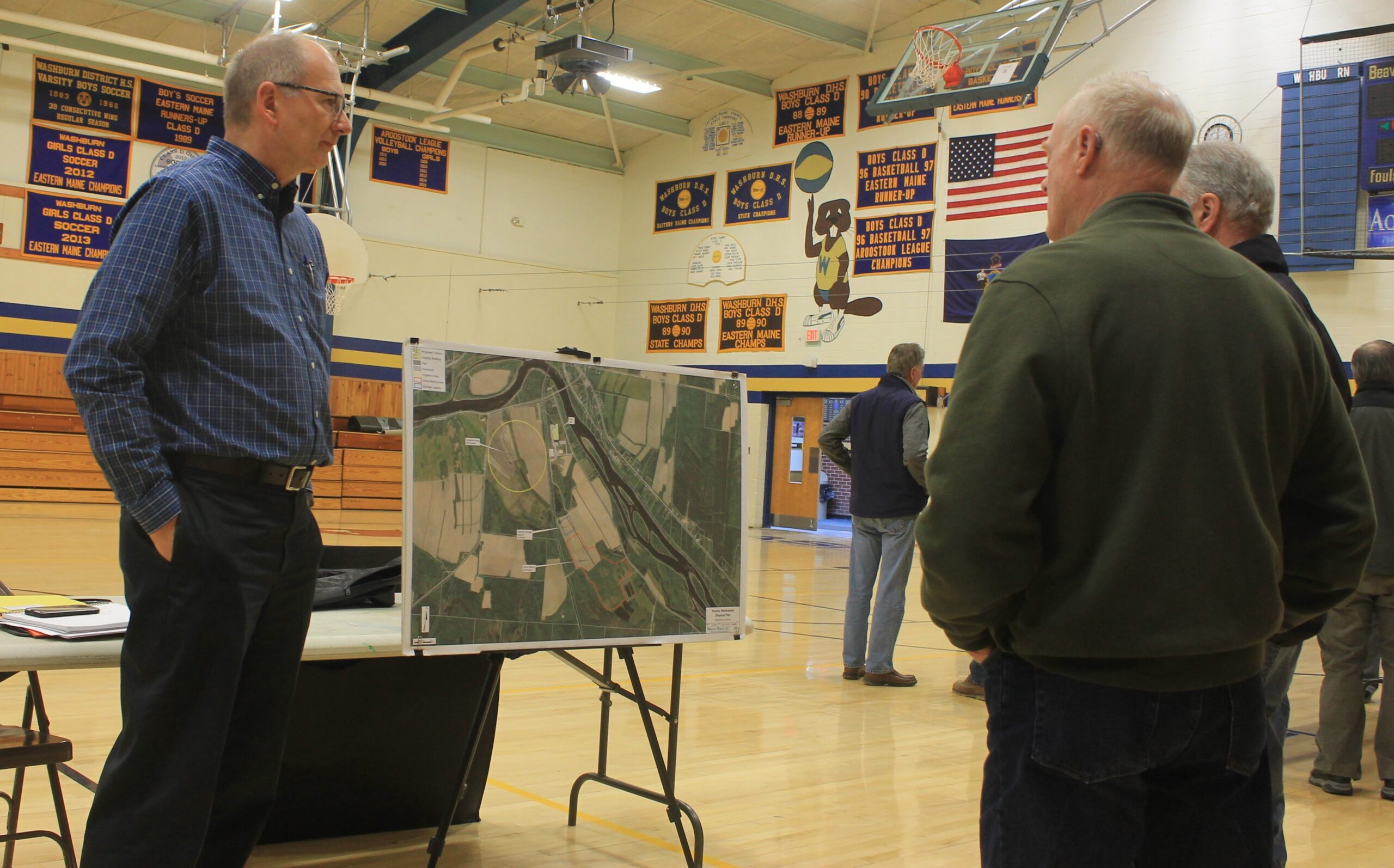
WASHBURN, Maine — Penobscot McCrum is planning to build a new potato processing plant at the site of a long-closed potato factory on Parsons Road in Washburn.

The site layout of the proposed Penobscot McCrum potato processing plant on Parsons Road in Presque Isle. (Anthony Brino | The Star-Herald)
Penobscot McCrum, the vertically integrated potato business of the McCrum family, is in the midst of submitting permitting documents to build a 115,000 square foot potato processing plant on Parsons Road, said Jan Weigman, project manager at Wright-Pierce.
“Once we get all our permits and everything in place, it’s about a year’s worth of construction,” Weigman said at an information meeting at Washburn High School Tuesday. “We’re trying to reuse the existing site. There’s a lot of infrastructure there that I think can be reused, such as the existing well.”
The company currently holds a variety of permits with the Maine Department of Environmental Protection that apply to the former factory site, so most of the permitting is in the form of amendments, Weigman said.
The Penobscot McCrum company was formed in 2004 when the McCrum family purchased the assets of Penobscot Frozen Foods and began operating the frozen foods plant in Belfast. The company’s family of businesses grow potatoes that are shipped to Belfast and turned into products including baked and mashed potatoes, wedges, and potato skins.
Don Flannery, executive director of the Maine Potato Board, said that the Maine Potato Board is “very supportive of the McCrum project.”
Flannery said the new plant “will increase processing markets for Maine growers,” joining other processors in the area, including McCain Foods in Easton and Bob Evans’ Pineland Farms in Mars Hill.
Jay McCrum, managing partner at Penobscot McCrum, said via email that the company is not yet commenting on the proposed facility.
The information meeting did not spell out the number of jobs that would be associated with the construction or operation of the facility, nor lay out the estimated total cost or additional tax revenue it would bring to Washburn.
Weigman said that the plant would use compressed natural gas trucked to the site and therefore have relatively low air emissions. It would use about 225,000 gallons of water per day and have a wastewater system that uses spray irrigation on adjacent fields, similar to the Pineland facility in Mars Hill. He also added that the Bangor and Aroostook rail trail that passes by the facility would not be impacted.






